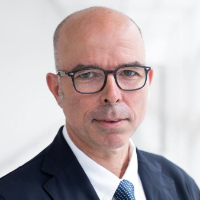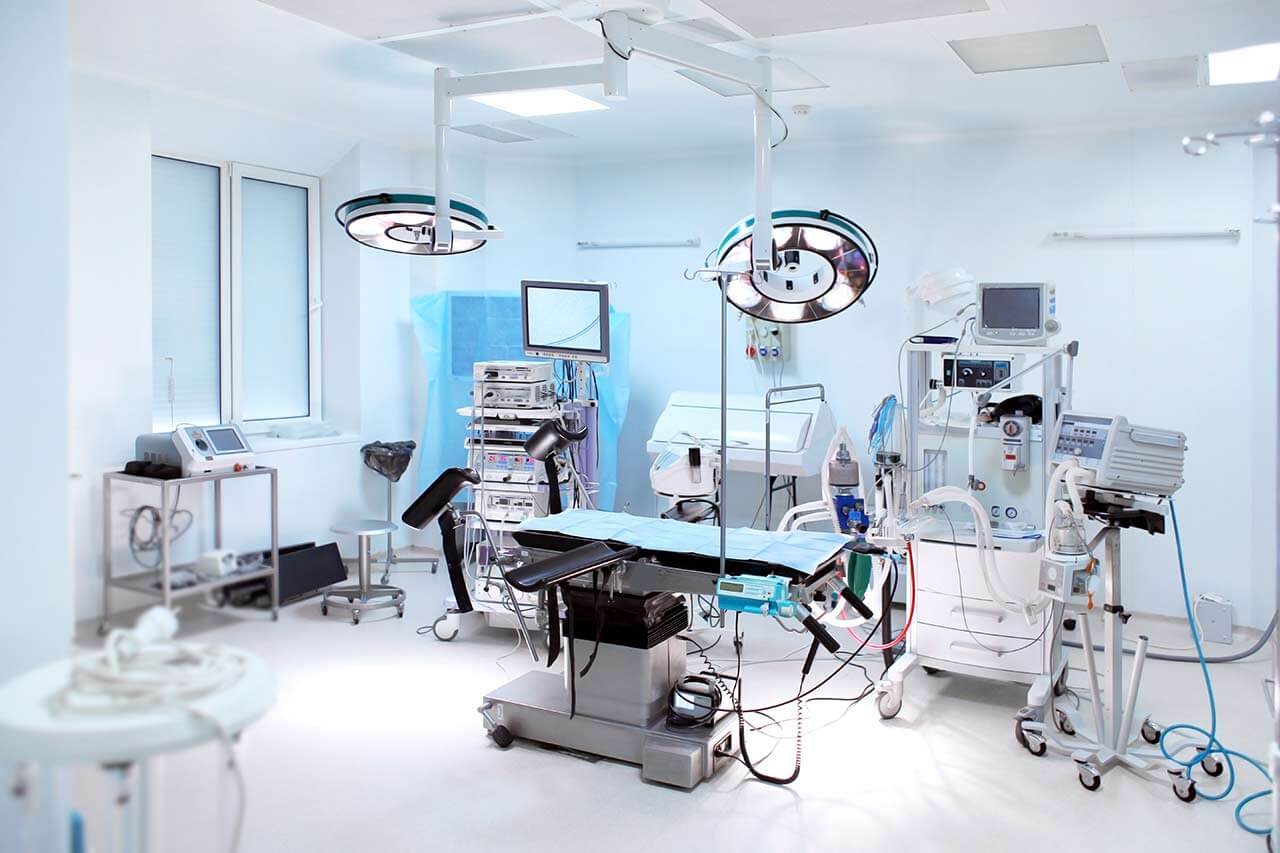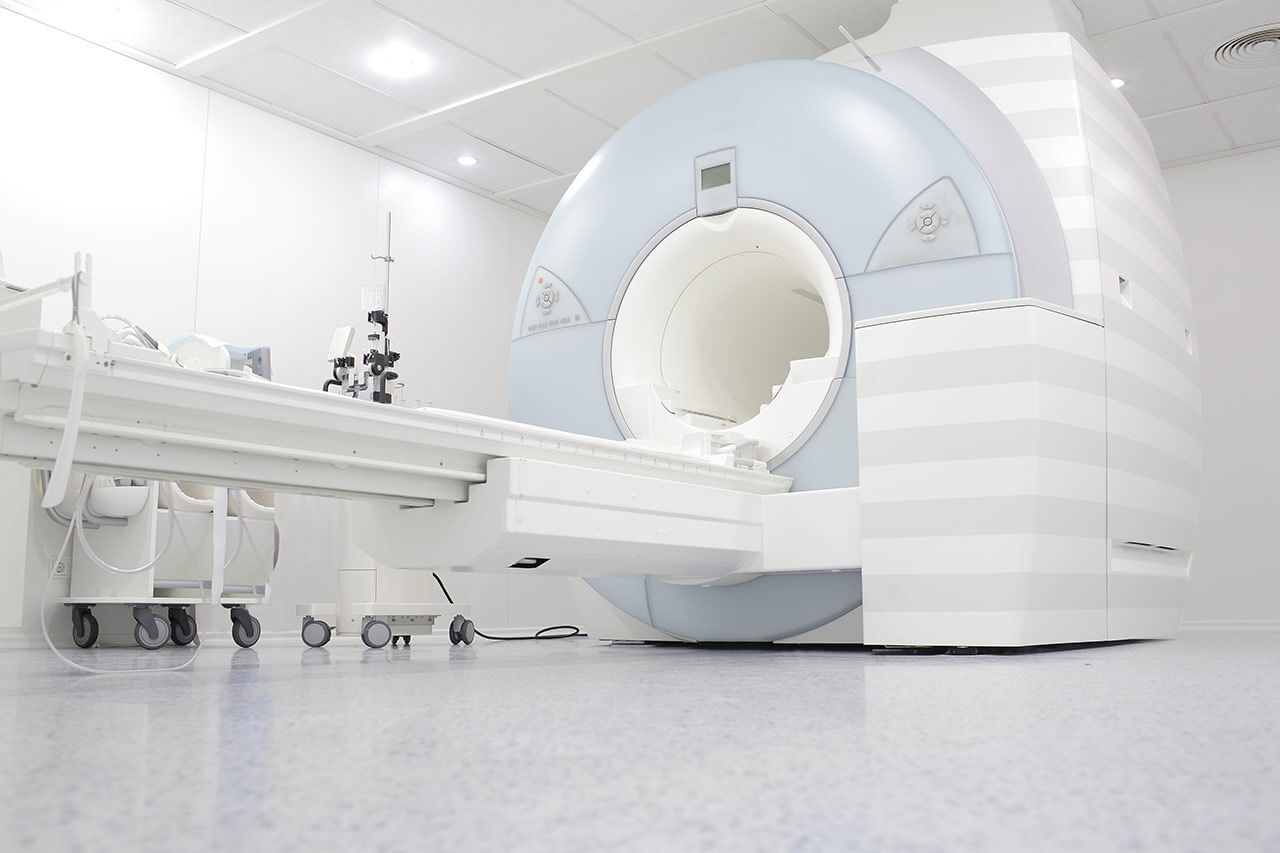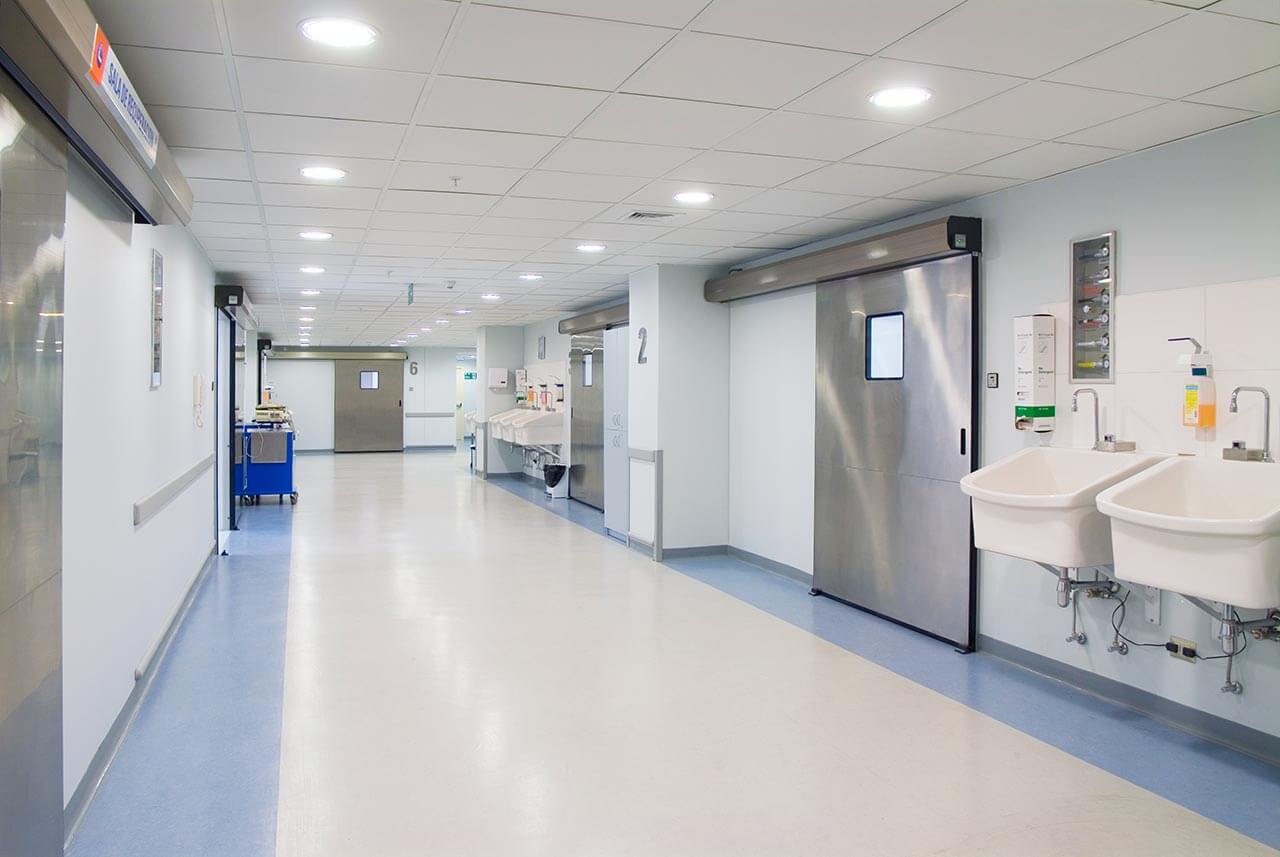
The program includes:
- Initial presentation in the clinic
- history taking
- general clinical examination
- audiometry
- otorhinolaryngological examination
- laboratory tests:
- complete blood count
- general urine analysis
- biochemical analysis of blood
- indicators of inflammation
- indicators blood coagulation
- dix-hallpike positional test
- brain and cervical spine CT/ MRI
- ent, neurological and vascular examination
- ECG and heart ultrasound
- consultation of related specialists
- symptomatic specific treatment
- the cost of essential medicines and materials
- nursing services
- control examinations
- full hospital accommodation
- developing of further guidance
Required documents
- Medical records
- Doppler ultrasound/duplex scanning of the brain vessels (if available)
- Brain MRI/CT scan (if available)
Service
You may also book:
 BookingHealth Price from:
BookingHealth Price from:
About the department
The Department of Neurology at the University Hospital Halle (Saale) provides comprehensive diagnosis and conservative treatment of the entire spectrum of diseases of the nervous system. The department is proud of its powerful diagnostic base. The medical facility performs all currently available electrophysiological studies (electroneuromyography, electronystagmography, electroencephalography, and registration of evoked potentials), extracranial and intracranial ultrasound scans, imaging tests (in cooperation with radiologists), laboratory tests, including cerebrospinal fluid analysis and molecular genetic testing. The treatment regimen for each patient is developed individually based on the results of the preliminary diagnosis. The department provides effective medical care to patients with inflammatory diseases of the nervous system, movement disorders, neuroimmunological pathologies, neuropathies, neuromuscular diseases, cerebrovascular diseases, chronic headaches, and facial pain. Treatment includes the latest medications, physiotherapy, exercise therapy, massage, manual therapy, and other methods. Experienced neurologists with extensive clinical experience are at the service of the department's patients. The specialists regularly demonstrate high treatment success rates, which is why the medical facility enjoys an excellent reputation in Germany and abroad. The Head Physician of the department is Prof. Dr. med. Markus Otto.
Of particular interest to the department's team of doctors is the treatment of neuromuscular diseases. The department operates a specialized center that is certified by the German Muscle Society (DGM). The department's neurologists specialize in the treatment of distal myopathies, metabolic myopathies, limb-girdle muscular dystrophy, myasthenia, amyotrophic lateral sclerosis, spinal muscular atrophy, and mitochondrial diseases. These pathologies cause complex symptoms such as muscle weakness, muscle atrophy, muscle cramps or spasms, muscle pain, spasticity, difficulty walking, coordination disorders, numbness, paresthesia, etc. When a neuromuscular disease is suspected, the patient undergoes a comprehensive diagnosis that includes electromyography, electroneuromyography to assess nerve conduction, blood tests, imaging tests (ultrasound, CT, and MRI scans), muscle biopsy, and genetic testing. Neuromuscular diseases are incurable, so the department's specialists aim to eliminate the symptoms of the pathology as much as possible and to stop or slow down its progression whenever possible. The patient is prescribed an individualized comprehensive treatment regimen that includes drug therapy with various classes of medicines, physiotherapy, occupational therapy, and diet therapy. In some cases, surgical treatment may also be necessary.
The department's team of neurologists is competent in the treatment of inflammatory diseases of the nervous system, such as encephalitis, meningitis, myelitis, encephalomyelitis, and meningoencephalitis. These diseases cause severe symptoms. If the patient is not treated in time, there is a risk of death. Treatment of inflammatory diseases of the brain and spinal cord is based on drug therapy with antiviral drugs, antibiotics, corticosteroids, and other drugs. Treatment is provided in a hospital setting under close medical supervision.
The department's therapeutic options are completed by the treatment of neuropathies. This is a group of pathologies in which one or more parts of the peripheral nervous system are damaged. This neuropathology causes severe pain, weakness, limb numbness, and tingling in one or more parts of the body. In most cases, neuropathy occurs as a result of compression or traumatic damage to the nerve; the development of pathology can also be provoked by autoimmune diseases, decompensated diabetes mellitus, infections, hereditary pathologies, long-term use of cytostatics and immunosuppressants, etc. In order to clarify the diagnosis of suspected neuropathy, the specialists of the department perform clinical examination, laboratory and instrumental tests. Treatment tactics depend on the mechanism of disease development and the severity of symptoms. The primary goal of therapy is to eliminate the cause of the disease and alleviate the symptoms. The neurologists of the department successfully combine drug therapy and physiotherapeutic procedures in the treatment of neuropathies.
The range of medical services provided by the department includes the following:
- Diagnostics and treatment of neuromuscular diseases
- Diagnostics and treatment of distal myopathies
- Diagnostics and treatment of metabolic myopathies
- Diagnostics and treatment of limb-girdle muscular dystrophy
- Diagnostics and treatment of myasthenia
- Diagnostics and treatment of amyotrophic lateral sclerosis
- Diagnostics and treatment of spinal muscular atrophy
- Diagnostics and treatment of mitochondrial diseases
- Diagnostics and treatment of inflammatory diseases of the nervous system
- Diagnostics and treatment of encephalitis
- Diagnostics and treatment of meningitis
- Diagnostics and treatment of myelitis
- Diagnostics and treatment of encephalomyelitis
- Diagnostics and treatment of meningoencephalitis
- Diagnostics and treatment of neuropathies
- Diagnostics and treatment of cerebrovascular diseases
- Diagnostics and treatment of movement disorders of neurological genesis
- Diagnostics and treatment of chronic headaches and facial pain
- Diagnostics and treatment of dementia
- Diagnostics and treatment of neuroimmunological diseases
- Diagnostics and treatment of other neurological diseases
Curriculum vitae
Prof. Dr. med. Markus Otto has been the Head Physician of the Department of Neurology at the University Hospital Halle (Saale) since July 1, 2021 and is also Professor for Neurology at the Faculty of Medicine of the Martin Luther University Halle-Wittenberg. Previously, he worked as a Neurologist at the University Hospital Ulm since 2006 and held the post of Professor for Neurology at the University of Ulm.
Prof. Otto studied medicine at the Universities of Mainz, London, and Zurich. He received his doctorate from the Faculty of Medicine at the University of Mainz in 1995, after which he worked at the University Hospital Goettingen. He was board certified in neurology in 2000, followed by his habilitation and Venia legendi in neurology in 2002. Dr. Markus Otto was appointed W2 Professor for Neuropsychiatric Dementia Research and Head of the Neurochemistry Laboratory in 2005.
Prof. Otto has more than 25 years of successful clinical practice in neurology. He is the author and co-author of more than 430 scientific publications and is a regular speaker at national and international neurology conferences.
Photo of the doctor: (c) Universitätsklinikum Halle (Saale)
About hospital
According to the prestigious Focus magazine, the University Hospital Halle (Saale) is one of the best medical institutions in Germany!
The history of the hospital goes back more than 300 years, and during this time it has managed to gain an excellent reputation not only in Germany, but also throughout the world. The hospital positions itself as a specialized healthcare facility for the treatment of severe and rare diseases and injuries. The hospital provides medical care to patients of all ages in compliance with the latest scientific achievements. The hospital is distinguished by successful research activities, especially in the field of cardiovascular diseases and oncopathologies – the specialists in these areas have made significant contributions to the development of the very latest diagnostic methods and therapeutic approaches.
The University Hospital Halle (Saale) has 30 specialized departments representing almost all areas of modern medicine, as well as 17 narrowly focused institutes. About 35,000 patients receive qualified medical care of European standards in the hospital every year, and more than 212,000 patients are served on an outpatient basis. This number of patients is evidence of the high efficiency of medical services and the excellent image of the hospital in the international medical arena; patients from all over the world regularly seek medical attention here.
Some of the hospital's structural units deserve special attention. For example, the Central Emergency Department (the largest in Saxony-Anhalt), modern dental clinics, the Perinatal Center, and the Transplant Center, which has a history of more than 40 years. The Transplant Center performs more than 40 kidney transplants annually, most of them from living donors.
Thanks to the use of the latest medical technologies and the availability of state-of-the-art equipment, many previously high-risk surgeries and procedures can now be performed in the hospital using sparing techniques. In this context, hybrid cardiac surgery and robotic surgery using the innovative da Vinci Si® system in urology are worthy of mention.
An integral part of the successful clinical practice of the University Hospital Halle (Saale) is the availability of experienced and competent medical staff. The total number of employees at the hospital is more than 4,450. Many physicians are known far beyond the borders of Germany: they regularly conduct important research that enables the development of modern medicine. In addition, the hospital specializes in training medical students, so qualified doctors and professors are willing to pass on their experience to the younger generation.
The hospital has many quality certificates such as DIN EN ISO 9001:2015 certificate, German Cancer Society (DKG) certificate, JACIE certificate, EndoCert certificate, ClarCert certificate, German Spine Society (DWG) certificate, German Trauma Society (DGU) certificate, CERT iQ certificate, LGA InterCetert certificate, and others.
Photo: (с) depositphotos
Accommodation in hospital
Patients rooms
The patients of the University Hospital Halle (Saale) stay in comfortable single, double, and triple rooms with a modern design. All patient rooms have an ensuite bathroom with a toilet and a shower. The standard patient room includes a comfortable automatically adjustable bed, a bedside table, a wardrobe, a table and chairs for receiving visitors, a TV, a radio, and a telephone. The patient rooms have access to Wi-Fi. For safety reasons, the use of laptops and cell phones is prohibited in some areas, including the intensive care units. The hospital also offers enhanced-comfort patient rooms.
Meals and Menus
The hospital offers delicious and well-balanced meals three times a day: breakfast, lunch, and dinner. Patients and their companions can choose from three daily menus, which always include dietary dishes. If necessary, an individual menu can be prepared for the patient. Children are offered a special menu with healthy and tasty dishes, rich in nutrients necessary for a growing body.
Further details
Standard rooms include:
![]() Toilet
Toilet
![]() Shower
Shower
![]() Wi-Fi
Wi-Fi
![]() TV
TV
Religion
Religious services are available upon request.
Accompanying person
Your accompanying person may stay with you in your patient room or at the hotel of your choice during the inpatient program.
Hotel
Your accompanying person may stay with you in your patient room or at the hotel of your choice during the inpatient program.




